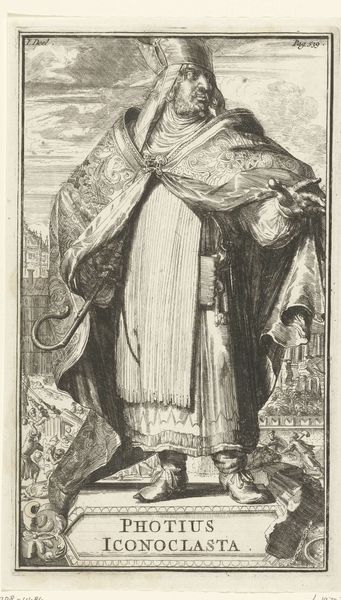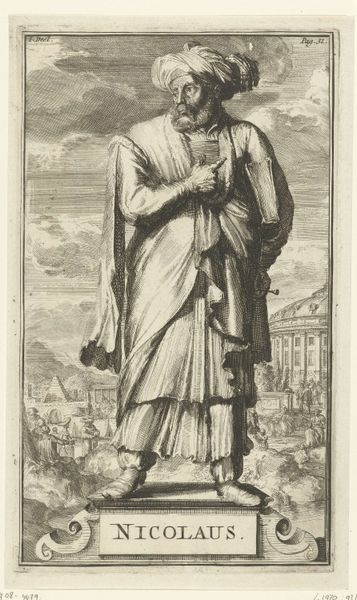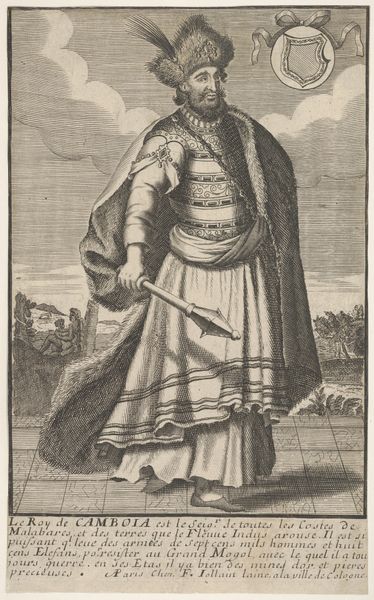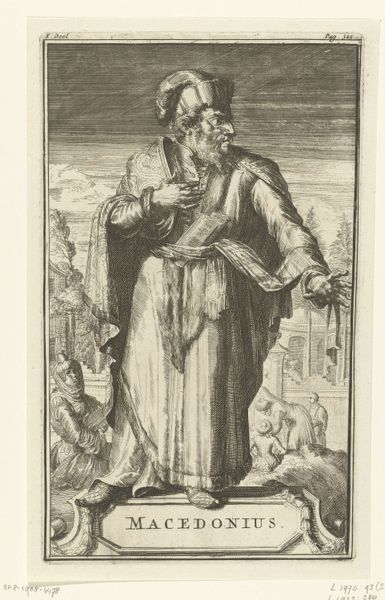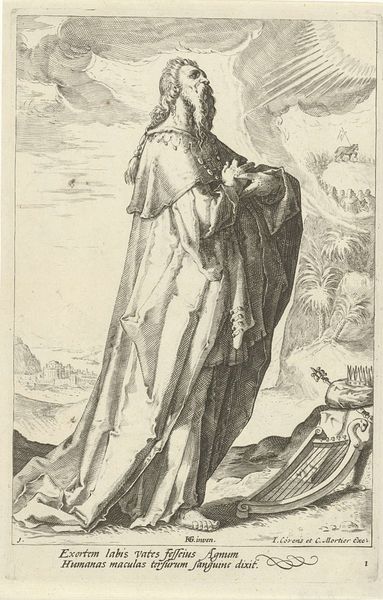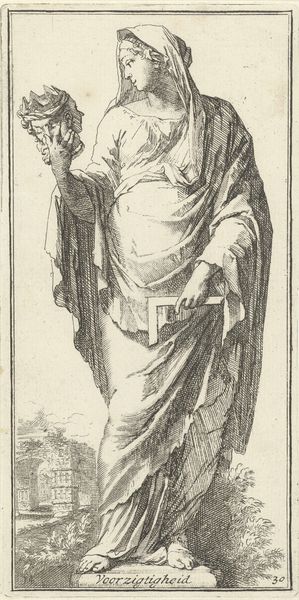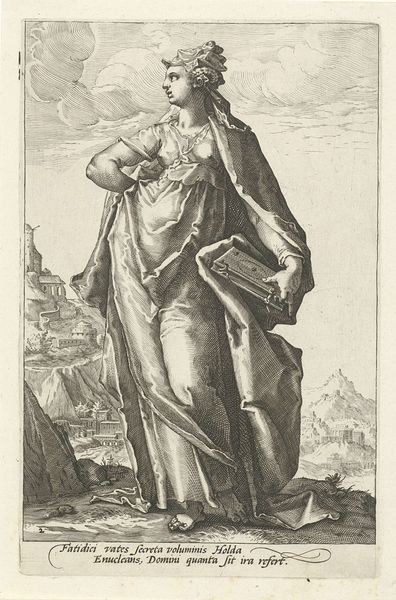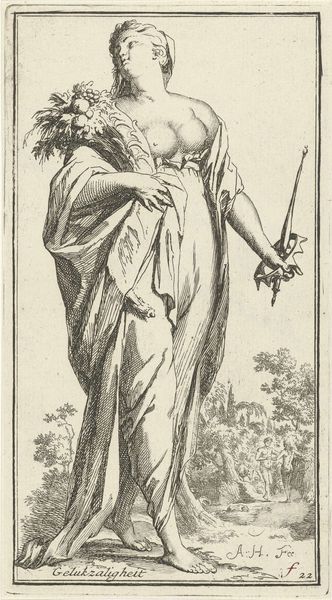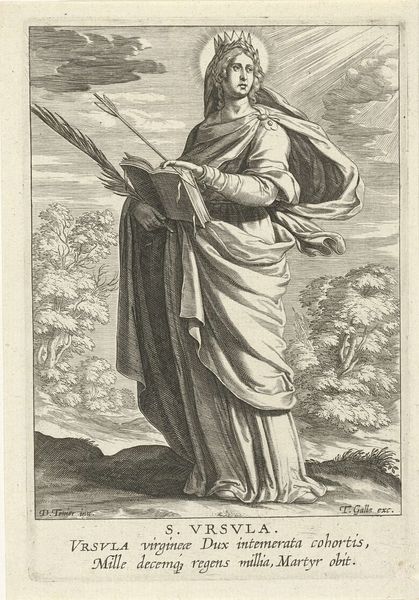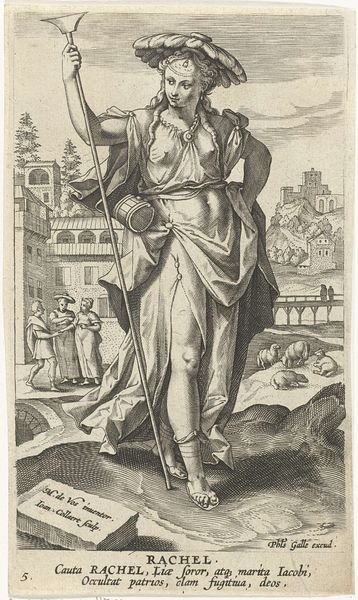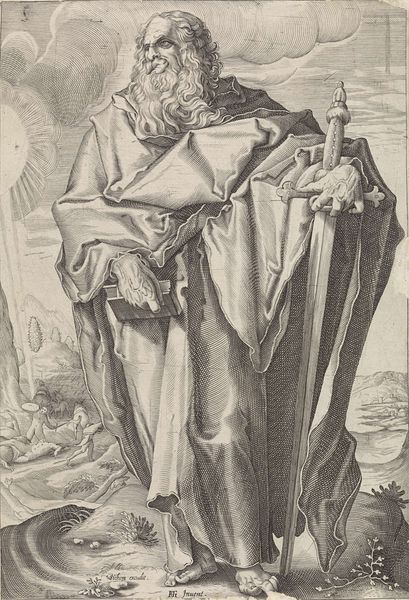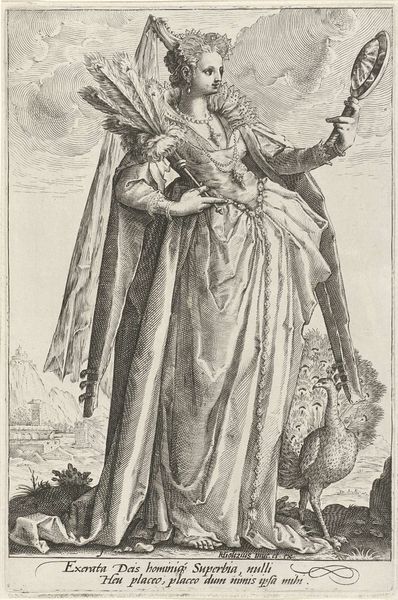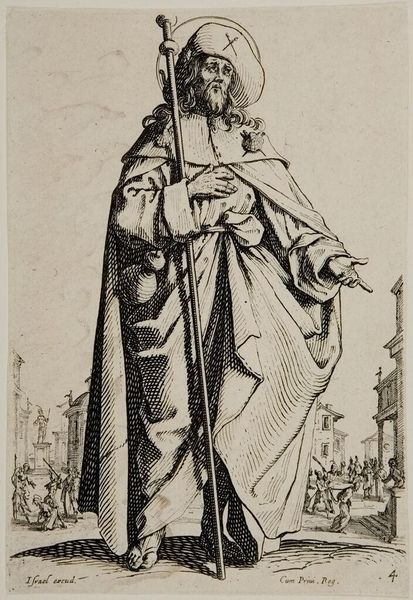
engraving
#
portrait
#
baroque
#
figuration
#
line
#
portrait drawing
#
history-painting
#
engraving
Dimensions: height mm, width mm
Copyright: Rijks Museum: Open Domain
Editor: This is "Portret van Manes of Manicheaeus Corbicus", an engraving made in 1701 by Romeyn de Hooghe. It's fascinating how he renders so much detail with just lines. It almost feels like a historical record, but also somewhat theatrical. What’s your interpretation of this work? Curator: This engraving speaks volumes about the perception and representation of religious figures during the Baroque era. Hooghe is not simply depicting Manes; he's crafting a visual argument, one rooted in the political and social anxieties surrounding religious heterodoxy. Note how Manes is presented almost as a colossal statue. Editor: I do see that he's monumental. How does that statue-like portrayal play into those anxieties you mentioned? Curator: Well, think about the intended audience. The Baroque period was a time of intense religious conflict. By presenting Manes, the founder of Manichaeism, in such a grandiose, almost imposing manner, De Hooghe subtly critiques the perceived threat of alternative belief systems. It challenges the established religious order through visual rhetoric. Editor: So, the engraving becomes a commentary on the power of imagery in shaping public opinion. The lines creating his form, do they signify any kind of hidden visual message? Curator: Absolutely. Look closely at the details in the crowd scenes, their postures of deference or curiosity. These elements weren't chosen at random. They reflect the power dynamics at play when new ideas, especially religious ones, are introduced to the public sphere. Editor: That's such an intriguing insight. I've been so focused on the figure himself I hadn’t noticed those surrounding figures! I definitely have to rethink how historical context shapes art. Curator: Precisely! The real value of historical artworks often lies beyond their surface aesthetics.
Comments
No comments
Be the first to comment and join the conversation on the ultimate creative platform.
